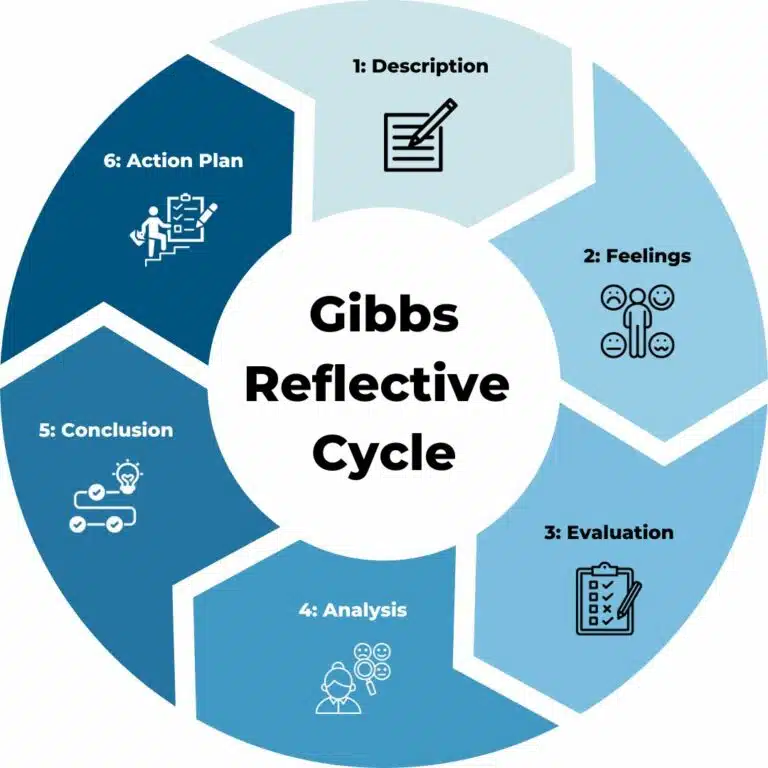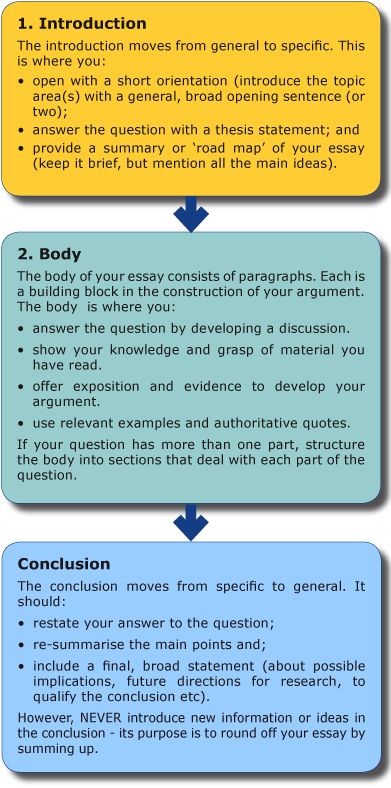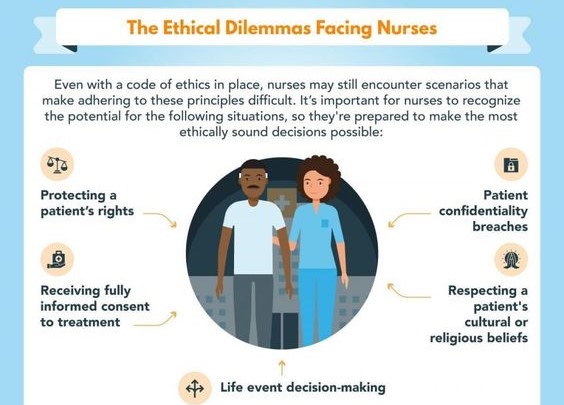The world of nursing is a whirlwind of constant learning, intricate knowledge, and deeply human experiences. To truly understand and grow in this field, reflection is essential. A nursing reflective essay acts as a powerful tool, allowing you to delve into your experiences, analyze your actions, and ultimately, become a more competent and compassionate nurse.
But the process of writing such an essay can feel daunting. The sheer volume of experiences, the desire to do justice to complex emotions, and the pressure to present your reflections in a clear and compelling manner can leave you feeling overwhelmed.
This guide offers comprehensive guidelines to help you navigate the labyrinth of writing a nursing reflective essay that resonates with clarity, depth, and impact.
What is the Essence of a Reflective Essay?
The essence of a nursing reflective essay lies in its ability to delve deep into a personal experience, analyze its impact, and draw meaningful conclusions. It's not merely a recounting of events, but a thoughtful exploration of the "why" behind them. This introspective process helps nurses (and other professionals) learn from their actions, improve their practice, and grow as individuals.
In nursing reflective essay writing, the writer examines their own role in a specific situation, reflecting on their thoughts, feelings, and actions. They analyze the context, considering factors like their own knowledge and skills, the patient's needs, and the broader healthcare environment. This critical self-assessment allows them to identify areas for improvement and develop strategies for future practice.
A nursing reflective essay is a powerful tool for professional development. It encourages nurses to engage in ongoing learning, promoting a culture of continuous improvement within the field. By reflecting on their experiences, nurses can enhance their understanding of patient care, their communication skills, and their overall approach to nursing practice.
The ability to write a compelling nursing reflective essay demonstrates a nurse's commitment to self-improvement and their ability to critically evaluate their own practice. This skill is highly valued in the profession, as it reflects a nurse's dedication to providing high-quality, patient-centered care.
Steps for Writing an Engaging Reflective Nursing Essay
1. Choosing Your Topic: A Journey of Self-Discovery
The first step in writing a nursing reflective essay is choosing the right topic. This is your chance to explore a specific experience that has resonated with you, whether it be a challenging encounter with a patient, a moment of personal growth, or a pivotal learning opportunity. Remember, the key is to choose a topic that holds significance for you, an experience that allows for a genuine exploration of your thoughts, feelings, and learnings.
Here are some questions to guide your selection:
- What recent nursing experience stands out in your mind?
- What event has challenged your assumptions or sparked a change in your perspective?
- What situation has allowed you to utilize your skills and knowledge in a new way?
- What patient interaction has left a lasting impression on you?
2. Recalling and Reflecting: Unearthing the Essence of Experience
Once you have chosen your topic, it's time to revisit the experience. This is not simply about reciting a factual account. Rather, it's about engaging in deep reflection, revisiting your thoughts, feelings, and actions. Remember, your nursing reflective essay is not a simple recounting of events; it's an exploration of your personal journey within those events.
To assist you in this process, consider these strategies:
- Journaling: Start by journaling about the experience, capturing your immediate thoughts and emotions as you revisit it.
- Mind Mapping: Create a mind map around your experience, exploring its various aspects, including your emotions, actions, and learning points.
- Conversation: Talk to a trusted colleague, mentor, or friend about the experience. Their perspectives and insights can offer valuable insights.
3. Building the Framework: Structure for Clarity and Impact
Now that you have a deep understanding of your chosen experience, it's time to structure your nursing reflective essay. A strong framework will ensure that your reflections are presented clearly and effectively, allowing your reader to follow your journey of understanding.
A common and effective structure for a nursing reflective essay is the Gibbs Reflective Cycle:

- Description: Provide a detailed and objective account of the experience.
- Feelings: Explore your emotions surrounding the experience, both during and after the event.
- Evaluation: Analyze your actions and the situation objectively. What went well? What could have been done differently?
- Analysis: Reflect on the theoretical knowledge and skills that inform your understanding of the experience.
- Conclusion: Draw a clear and concise conclusion from your reflections. What did you learn? How will you apply this learning in future situations?
- Action Plan: Outline how you will apply your learnings to future nursing practice.
4. Writing with Purpose: Crafting a Powerful Narrative
The heart of your nursing reflective essay lies in your ability to craft a compelling narrative that showcases your journey of learning and growth. Don't be afraid to be honest and vulnerable in your writing, allowing your voice to shine through.
Here are some tips for crafting a powerful narrative:
- Use vivid language: Engaging sensory details can bring your experience to life, creating a richer and more immersive reading experience.
- Show, don't tell: Instead of simply stating your feelings, use descriptive language to help your reader understand your emotional state.
- Use reflective language: Integrate reflective phrases and verbs to highlight your personal growth and learning, such as "I realized", "I learned", "I now understand", "This experience has taught me".
- Connect theory and practice: Draw on your theoretical knowledge to analyze your experience, demonstrating your ability to apply theory to real-world situations.
- Maintain a professional tone: While honesty and vulnerability are crucial, maintain a professional tone throughout your essay.
5. The Power of Feedback: Refining Your Narrative
Once you've completed your nursing reflective essay, it's vital to seek feedback from trusted sources. This can be a mentor, a fellow student, or a professor. Their perspectives can help you identify areas for improvement, such as:
- Clarity of your reflections: Is your reasoning clear and well-supported?
- Flow of your narrative: Does the essay flow smoothly from one point to the next?
- Use of language: Is your writing engaging and professional?
- Structure and format: Does your essay adhere to the required formatting guidelines?
6. Crafting a Polished Final Product: Presentation Matters
The final step in writing a nursing reflective essay is to present your work professionally. This means attending to the formatting guidelines, ensuring proper citation, and presenting your work in a clear and concise manner.
Here are some key points to consider:
- Formatting: Adhere to the formatting guidelines provided by your institution. Pay attention to font size, margins, and spacing.
- Citation: Properly cite any sources you use in your essay using the specified citation style.
- Proofreading: Carefully proofread your essay for any spelling, grammar, or punctuation errors.
- Word count: Ensure that your essay adheres to the specified word count limits.

7. Beyond the Essay: The Ongoing Journey of Reflection
Writing a nursing reflective essay is not just about fulfilling an academic requirement. It's about embarking on a journey of continuous learning and growth. The insights you gain from the process can shape your practice, deepen your understanding of patient needs, and foster your professional development.
Here are some ways to cultivate ongoing reflection in your nursing practice:
- Keep a reflective journal: Make journaling a regular habit, reflecting on your daily experiences and lessons learned.
- Engage in peer debriefing: Discuss challenging cases with colleagues, sharing perspectives and insights.
- Attend professional development workshops: Engage in continuing education opportunities that encourage critical thinking and reflection.
- Seek mentorship: Connect with experienced nurses who can provide guidance and support your reflective practice.
Examples of Nursing Reflective Essays
To gain a better understanding of the structure and content of a nursing reflective essay, let's explore some illustrative examples:
Example 1: Challenging Assumptions
A student nurse reflects on a challenging interaction with a patient who held different beliefs about healthcare. The essay explores the student's initial frustration, their subsequent research on cultural sensitivities, and the learning they gained about providing patient-centered care despite differing viewpoints.
Example 2: Developing Clinical Skills
A newly graduated nurse reflects on their experience performing a complex procedure for the first time. The essay details the nurse's initial anxiety, the support received from a senior nurse, and the sense of accomplishment they experienced after successfully completing the procedure.
Example 3: Ethical Dilemma
A nurse reflects on a situation where they had to make a difficult ethical decision. The essay explores the nurse's ethical framework, the factors they considered, and the impact of their decision on the patient and their family.

Embracing the Power of Reflection
Writing a nursing reflective essay is not a mere academic exercise; it is a transformative journey of self-discovery and professional growth. By engaging in this process, you will gain invaluable insights into your own strengths and weaknesses, refine your clinical skills, and ultimately become a more competent and compassionate nurse. Remember, the power of reflection lies in its ability to illuminate the path ahead, guiding you towards a deeper understanding of your role in the ever-evolving world of nursing.
Professional Nursing Reflective Essay Writing Assistance
Are you stuck with a nursing reflective essay? Then, engage Exemplary Dissertations for professional essay writing assistance. We offer customized essay writing help for undergraduate, Degree, Master’s and Doctoral nursing programs. Our service covers topic suggestion, essay writing, proof reading and editing, plagiarism check and removal. We also provide customized writing help for nursing research papers, case studies and dissertations.